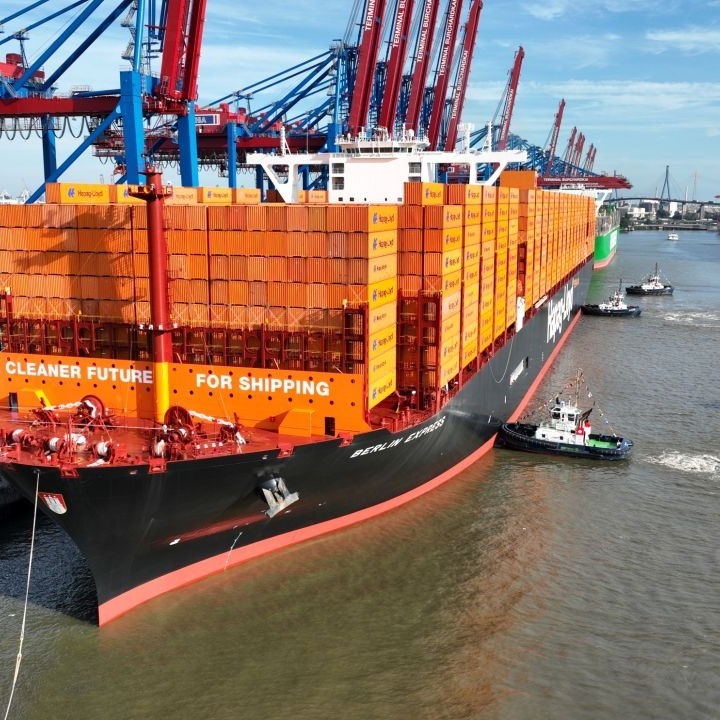German container firm Hapag-Lloyd has upgraded its full-year profit forecast after a good start to the year.
The large liner company announced on Wednesday that it expects Ebitda to be in the range of $2.2 to 3.3 bn (€2 to 3 bn) and the group Ebit to be in the range of $0 to 1.1bn (€0 to 1bn).
Against the backdrop of very volatile freight rates and major geopolitical challenges, the outlook is however subject to a high degree of uncertainty, as the liner reports.
The difficult security situation in the Red Sea is likely to continue to lead to additional capacity demand and might affect global supply chains. However, as it is forecasted by the liner, the planned commissioning of new tonnage over the course of the year should help to sustain supply chains and avoid substantial disruption.
The firm concluded the first quarter of 2024 with a group Ebitda of $942m (€868m). Compared to the same quarter of the previous year, the group Ebit decreased to $396m (€365m) and the group profit to $325m (€299m).
The first three months of the financial year were characterised by an upturn in demand and renewed disruptions in global supply chains due to the tense security situation in the Red Sea.
“Even though our results are significantly below the exceptionally strong figures from the previous year owing to the normalisation of supply chains, we are pleased to have got the new year off to a good start,” said Rolf Habben Jansen, chief executive of Hapag-Lloyd AG.
The rates stabilised in the first quarter due to the rerouting of ships around the Cape of Good Hope and higher demand for capacity. The numerous new ships that have and will be delivered across the industry in 2024 have been instrumental to keep the supply chains going without too much disruption.
“We must keep a close eye on our costs, and we will continue the implementation of our strategy 2030, with main focus on our decarbonisation initiatives and our promise to be the undisputed number one for quality for our customers,” added Rolf Habben Jansen.
For 2024, the International Monetary Fund expects global economic growth of 3.2%, similar to the previous year’s figure. The forecast is thus below the historical average of 3.8% from 2000 to 2019. This prediction is based in particular on more restrictive monetary policy, the withdrawal of fiscal support and lower productivity growth.
Global trade is expected to grow by 3.0% in 2024, which is below the historical average of 4.9%. Increasing trade distortions and geo-economic fragmentation are likely to continue to weigh on the level of global trade.



